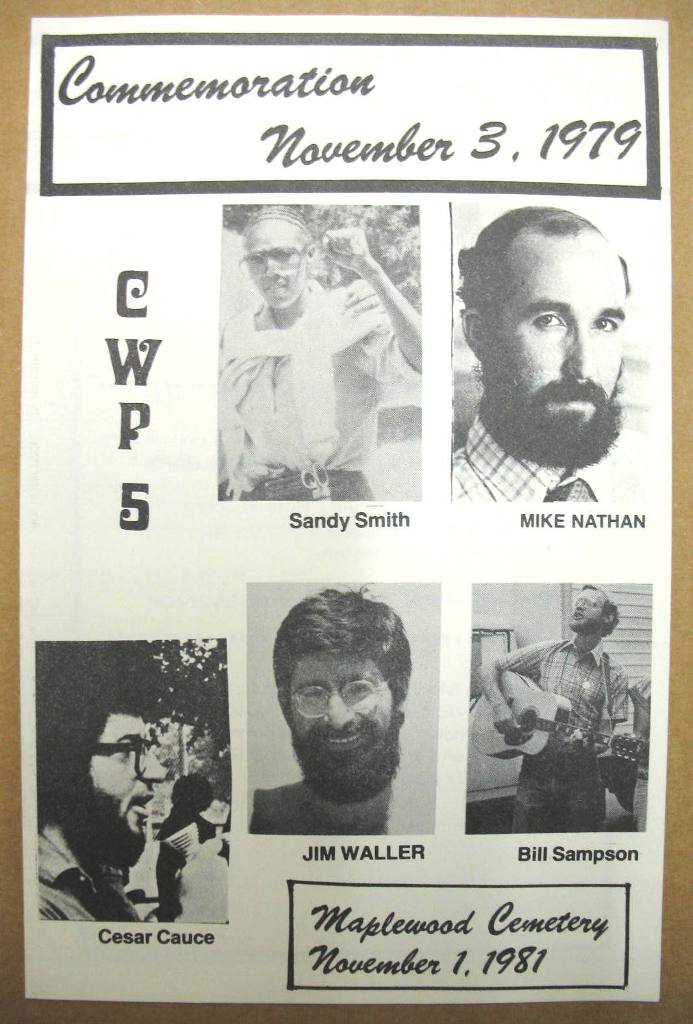Thirty years ago today, on November 3, 1979, the Workers Viewpoint Organization (later renamed the Communist Workers Party) sponsored an anti-Klan march and conference in Greensboro, North Carolina. Members of the Ku Klux Klan and Nazi Party attacked the demonstrators, killing five and injuring eleven Communist Workers Party members.

Family and friends of the deceased organized the Greensboro Civil Rights Fund, raising some $700,000 to prosecute the Ku Klux Klan and the Nazi Party, as well as local and federal law enforcement agencies–whose undercover agents and paid informants in the Klan and Nazi Party allegedly participated in planning the attacks.
In 2004, around the time of the 25th anniversary of the Massacre, a Greensboro Truth and Reconciliation Commission was impaneled by the Greensboro community in order to “examine ‘the context, causes, sequence and consequence of the events of November 3, 1979’ for the purpose of healing transformation for the community” (from the Commission’s mandate). Over the course of nearly two years the commission sponsored public hearings, meetings, scholarly panels, interfaith religious services, and other community gatherings. Their activities culminated in a lengthy report giving a set of conclusions and recommendations which they hoped would continue the process of reconciliation and map the way forward. To quote their report,
We believe the truth and reconciliation process in Greensboro opened up the debate around Nov. 3, 1979, in a positive way and has successfully engaged a broad spectrum of the community in an effort that offers hope for reconciliation. As a Commission that looks a bit like Greensboro in microcosm, we found that this process –and our own struggle to hear and understand each other- had a profound impact on our perceptions of the issues we explored. Our individual and collective commitment to the truth helped us persevere. And the human stories and emotions we encountered along the way moved us to do our best to leave behind a legacy we hope will serve Greensboro for years to come. We cannot say what the future will hold for this community or what the long-term impact of this process will look like, but we hope that this process also serves as a learning tool for others in this country who, like Greensboro, are burdened by a legacy of hurt and inspired by the possibility of honestly coming to terms with their own history.
So today we honor the memories of those lost to the violence of the Greensboro Massacre, thirty years ago today. We also honor the courage of the Greensboro community which sought to heal itself through the truth and reconciliation process.
And finally, we especially want to honor the life and work of Dr. John K. “Yonni” Chapman, a long-time and loyal supporter of the Southern Historical Collection. On October 22, 2009, following a lengthy battle with a rare blood cancer, Yonni Chapman passed away at his home in Chapel Hill. Yonni Chapman was one of the anti-Klan demonstrators who survived the attack of November 3, 1979. Later, he was involved in the truth and reconciliation process (his statement before the Commission is available here) and continued racial justice organizing in North Carolina for nearly three decades.
